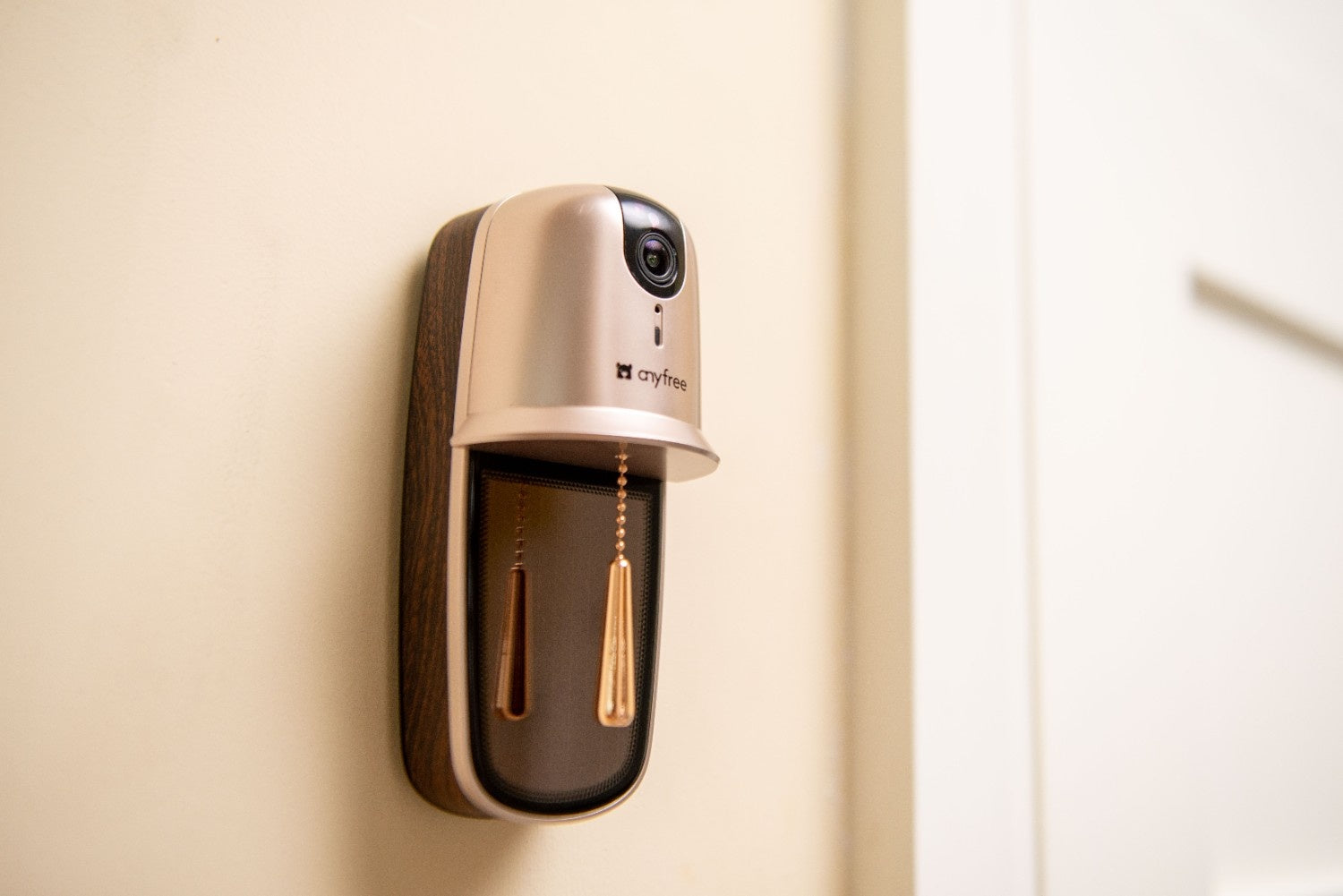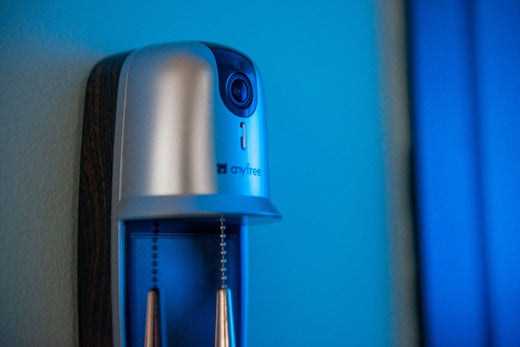- 1. Choose a Safe Neighborhood to Live In
- 2. Install a Smart Doorbell
- 3. Use High-Quality Locks and Change Passwords Regularly
- 4. Reinforce Doors and Windows
- 5. Install a Home Security System
- 6. Keep Valuables Secure
- 7. Avoid Sharing Your Exact Location on Social Media
- 8. Protect Your Personal Information
- 9. Trust Your Instincts
- 10. Stay Aware of Local Crime Information
- 11. Consider Getting a Pet Dog
- 12. Get to Know Your Neighbors
- 13. Improve Your Self-Defense Skills
- 14. Be Cautious About Making New Friends
- 15. Avoid Excessive Drinking and Drugs
- Conclusion
Living alone can be one of the most empowering experiences a woman can have. It’s your space, your rules, and your freedom—but it’s also natural to want to feel safe and secure in your sanctuary. Whether you’ve just moved into your first apartment or have been living solo for years, ensuring your home is as secure as possible is key to feeling truly at ease.
As women, we face unique security concerns, but the good news is that there are countless ways to take control of your safety—without sacrificing comfort or style. In this blog, we’re sharing 15 practical, easy-to-implement security tips designed with women in mind. From high-tech gadgets that fit seamlessly into your lifestyle to simple habits that make a world of difference, you’ll find everything you need to feel empowered, confident, and safe in your home.
1. Choose a Safe Neighborhood to Live In
Before even moving in, the first step to ensuring your safety is selecting a secure neighborhood. Research crime rates, talk to local residents, and use online tools to assess the safety of your area. Choose a location that’s well-lit, has active community engagement, and is close to police stations or emergency services. A safe neighborhood not only lowers your risk of encountering dangerous situations but also allows you to feel more at ease in your day-to-day life.
2. Install a Smart Doorbell

One of the easiest and most effective ways to improve your home’s security is by installing a smart video doorbell. These devices let you see and speak to visitors without opening your door. You can monitor who’s at the entrance remotely through your phone, allowing you to verify whether someone is trustworthy before letting them in. Some models even include motion sensors and video recordings, giving you added peace of mind. An easy to install smart doorbell camera is an affordable, tech-savvy solution for anyone living alone.
3. Use High-Quality Locks and Change Passwords Regularly

Your door locks are your first line of defense. Invest in high-quality, sturdy deadbolts that are difficult to tamper with. Smart locks are also a great option, as they allow you to lock and unlock doors remotely and set unique access codes for trusted visitors. For added security, regularly change your lock codes or keys, especially if you’ve recently had maintenance work done or moved into a new place. A secure entry point is essential to keeping intruders out.
4. Reinforce Doors and Windows

Physical barriers are just as important as smart technology when it comes to home security. Reinforce doors and windows with quality materials to prevent break-ins. Install additional deadbolts or security bars on windows, especially those on lower floors. You can also apply security film to your windows to make it more difficult for burglars to break in. These simple improvements can dramatically increase your home’s security and prevent an easy entry.
5. Install a Home Security System

A home security system is an investment in your peace of mind. Whether it’s a professionally monitored system or a DIY setup, having alarms, cameras, and motion sensors in place adds an extra layer of protection. You’ll receive immediate alerts if there’s unusual activity around your home, and in the case of an emergency, a monitoring service can alert authorities quickly. Some systems even integrate with smart home devices, allowing you to monitor your home from anywhere in the world.
6. Keep Valuables Secure

It’s important to keep valuables out of sight from windows and doors. Don’t leave expensive items like jewelry, electronics, or important documents visible from the outside. Use lockboxes or safes to store valuable items inside your home. The goal is to make your home less attractive to burglars. By securing your valuables, you reduce the risk of becoming a target for theft, ensuring that your possessions are safe even when you're not around.
7. Avoid Sharing Your Exact Location on Social Media

In today’s digital age, it’s tempting to share everything, including your whereabouts, on social media. However, posting real-time updates about your location can give potential intruders valuable information about when you’re not home. Always wait until after you’ve returned to share photos or check-ins. Additionally, avoid disclosing personal details like your daily routines, as this can make it easier for someone to predict your movements.
8. Protect Your Personal Information
Protecting your personal information is critical to your safety. Be cautious about what you share online, especially regarding where you live or details about your daily schedule. Use strong, unique passwords for all your accounts and enable two-factor authentication wherever possible. Be wary of phone calls, emails, or messages asking for personal details, and never give out sensitive information to strangers, no matter how convincing they may seem.
9. Trust Your Instincts
Your intuition is a powerful tool when it comes to safety. If something feels off or a situation makes you uncomfortable, trust your instincts. Whether it’s a stranger at the door, an unusual noise, or an odd feeling in a public place, it’s always better to err on the side of caution. Trusting your gut can often prevent dangerous situations before they even begin. Don’t be afraid to take action if you feel something isn’t right, such as calling a friend, notifying authorities, or simply leaving the situation.
10. Stay Aware of Local Crime Information

Being informed about the crime trends in your area is essential for staying safe. Many communities have neighborhood watch programs, local police websites, or social media groups where crime reports and safety tips are shared. By staying updated on any recent incidents or areas of concern, you can adjust your habits accordingly—whether it’s avoiding certain areas at night or taking extra precautions when going out. Awareness is key to preventing potential threats.
11. Consider Getting a Pet Dog

A pet dog is not only a loyal companion but can also provide an additional layer of security. Dogs are known to alert their owners to the presence of strangers and can deter burglars simply by barking at unfamiliar sounds or people. Large or loud breeds are particularly effective in creating a sense of alertness around your home. A dog also provides the added benefit of companionship, which can reduce feelings of loneliness when living alone.
12. Get to Know Your Neighbors

Having a good relationship with your neighbors can significantly improve your safety. Neighbors who know you are more likely to notice unusual behavior around your home and intervene if something seems suspicious. Take the time to introduce yourself, exchange contact information, and establish a “watchful eye” system where you can look out for each other’s homes. A tight-knit community can be a strong deterrent against crime.
13. Improve Your Self-Defense Skills
Knowing how to protect yourself physically can be empowering and life-saving. Consider taking a self-defense class to learn practical skills for defending yourself in an emergency. Even basic knowledge of self-defense moves can give you confidence and increase your chances of staying safe if you’re ever in a dangerous situation. Carrying pepper spray or other non-lethal self-defense tools can also be an effective way to protect yourself.
14. Be Cautious About Making New Friends

Meeting new people is natural, but it’s important to take your time and be cautious. Always meet new acquaintances in public places first and let a friend or family member know where you’ll be. Avoid giving out too much personal information, especially to people you’ve just met online. Trust your instincts if something feels off—if someone is pressuring you or making you feel uncomfortable, don’t hesitate to remove yourself from the situation.
15. Avoid Excessive Drinking and Drugs
When living alone, it’s essential to remain aware of your surroundings at all times. Excessive drinking or drug use can impair your judgment and make you more vulnerable to dangerous situations. Always drink responsibly and never accept drinks from strangers in social settings. If you're planning to drink, stay with a trusted friend, and make sure you’re aware of your limits. By maintaining a clear head, you can better protect yourself and avoid risky situations.
Conclusion
Your safety is a priority, and taking proactive steps to protect yourself and your home is the best way to enjoy your independence with peace of mind. By following these 15 security tips, you’ll feel empowered and confident knowing that you’ve taken the necessary precautions to keep yourself safe. Remember, small changes can make a big difference—so start implementing these strategies today, and enjoy the peace of mind that comes with knowing you’ve got your security covered.





Leave a comment
This site is protected by hCaptcha and the hCaptcha Privacy Policy and Terms of Service apply.